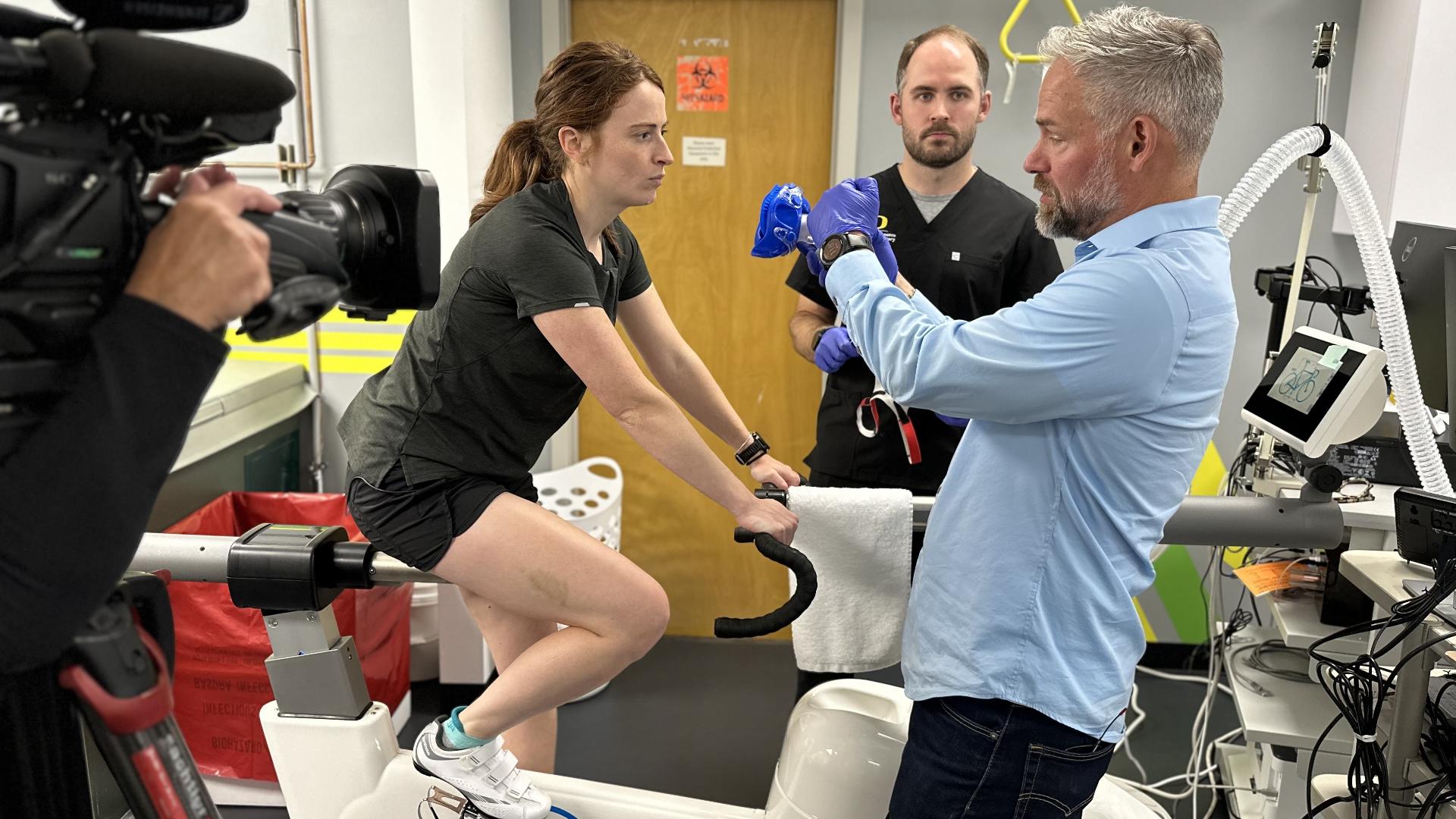EUGENE, Ore. — When most people gear up and hop on a bike, it's just for fun. That's how University of Oregon PhD student Emma Reed describes it. But lately, her bike rides have also been a lot of work.
Reed is participating in a research study at the University of Oregon in the Oregon Performance Research Laboratory. The work is funded by the Wu Tsai Human Performance Alliance.
"I’m a nerd; I think it’s very cool, and then, it’s a good opportunity to learn and help out," Reed said. "I think I was the first completed subject."
Before getting on the bike, Reed puts on a mask hooked up to a tube, and from there, a machine, which tracks her oxygen consumption. She also wears a heart monitor and some muscle oxygenation sensors for the study.
"She’s doing great," said professor Brad Wilkins as Reed gets up to speed on the stationary bike.
This was Reed's routine each Friday for four weeks, while Wilkins and his team tried to find out what her maximum sustainable exercise intensity is.
"I basically had a free maximal exercise test to see what my max capacity is," Reed said, saying often the test costs hundreds of dollars. In this case, she was a paid participant of the study.
How do hormones impact performance?
Finding Reed's exercise intensity is far from the end goal for Wilkins.
"This specific study is looking at how hormones fluctuate throughout a month for women, as well as for men, and how that fluctuation in sex hormones might impact performance outcomes," he said.
That's why Wilkins set the biking exercises over the course of four weeks, to align with the length of a typical menstrual cycle.
"We’re bringing them in at that same time period, same time of day, over and over throughout the month," Wilkins said. "We’re measuring hormone levels and correlating that back to our performance outcome, so it’s a unique approach."
Wilkins said this type of focus on the female cycle in athletics is underappreciated.
"We know so much more about how the physiology of men and how they're able to perform than we do about women, so it's very important to me to try to level that playing field as much as possible," Wilkins said.
It's an area where scientific expertise seems to be missing — at least in Wilkins' opinion — but that doesn't stop people from talking about the connections between hormones and performance.
"Anecdotally, people are providing training recommendations based on hormone fluctuations, especially for female athletes," Wilkins said. "I would argue that we don’t really have those data yet; we don’t really have the knowledge that we need to make those recommendations."
That's where this study comes in. Wilkins wants to bridge the knowledge gap and hopes in the future this information can be used to make those very recommendations that help women perform at a higher level.
"Understanding how these fluctuations can impact these performance outcomes can be very important for people to understand how they can train and perform at a very high level," Wilkins said. "What we’ve learned so far is there’s definitely not a cut-and-dry answer."
He also stresses that this research isn't just for athletes. He believes it can help anyone because everyone performs differently.
"Everything we're learning about the elite athletes can be applied to somebody with severe cardiovascular disease and everywhere in between because performance is an individual thing," Wilkins said.
'Breaking2': Wilkins' passionate history
Wilkins has a passion for studying the intersection of athletics and science. Prior to this, Wilkins was working at Nike with elite runners and involved with the "Breaking2" documentary focused on breaking the two-hour marathon.
While runner Eliud Kipchoge was close to accomplishing this, he missed the two-hour goal by seconds. Two years later in 2019, Kipchoge ran a marathon in less than two hours.

